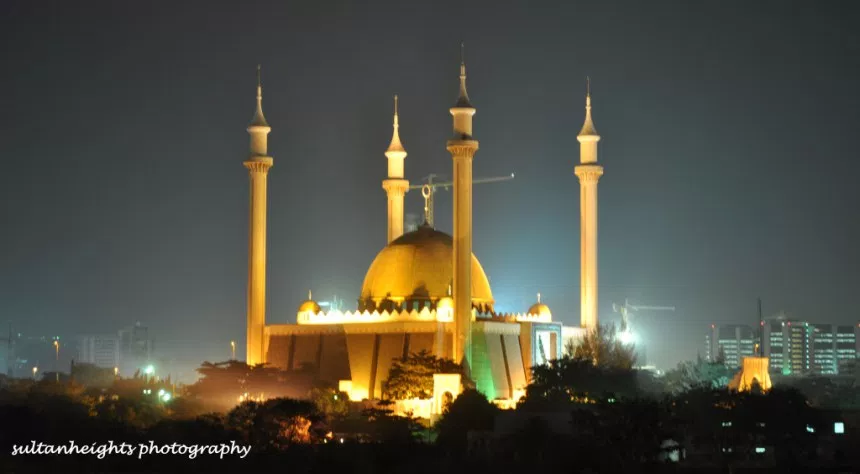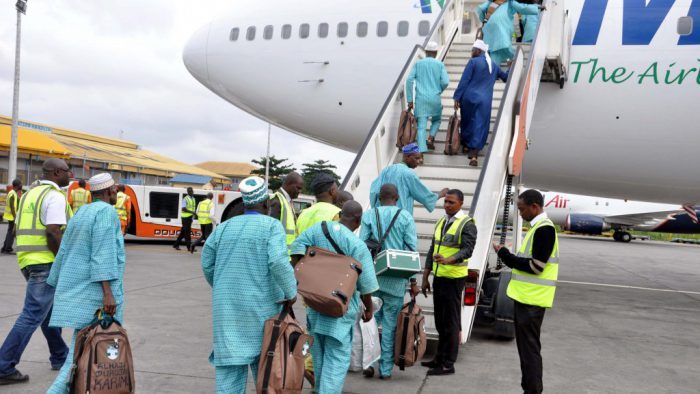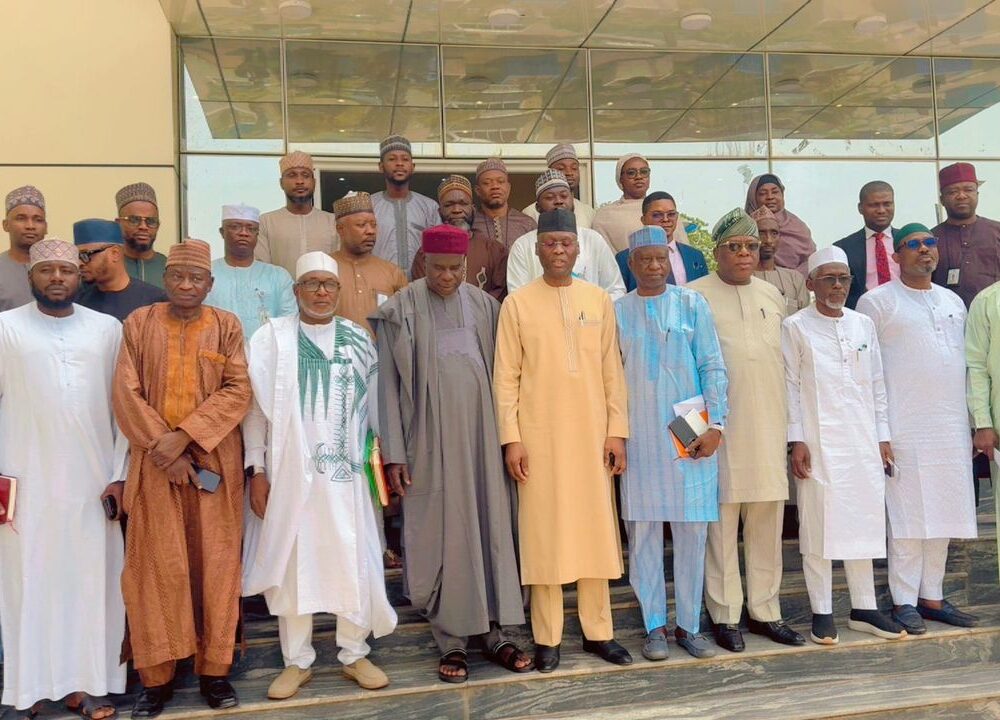In the name of Allah, the Most Beneficent, the Most Merciful
All perfect praise be to Allah, The Lord of the Worlds. I testify that there is none worthy of worship except Allah, and that Muhammad is His servant and Messenger. We ask Allah to exalt his mention as well as that of his family and all his companions.
Dear brothers and sisters! Islam is a religion of justice and compassion that teaches morality and forbids bad conduct in society.
Special merits have been accorded to the elderly; they are treated with respect and dignity. Muslims are urged to honour them and this is especially true when it comes to the treatment of one’s parents.
Although death may take us at any age, parents are often elderly and as such require special care and attention. Even though the rigours of old age may cause parents to be demanding, impatient or petulant, a Muslim is still obligated to treat them with kindness and to look after them lovingly. Allah Almighty linked honouring parents to the command to believe in Him Alone. He the Most High said:
“Worship Allah and join none with Him (in worship); and do good to parents…” [Qur’an, 4:36]
One of Prophet Muhammad’s companions asked about the deeds Allah loved most. The Prophet (Peace be upon him) replied:
“The prayer offered on time and honouring parents…” [Bukhari]
The sayings of Prophet Muhammad (Peace be upon him) abound with words of wisdom about the obligation to be dutiful and kind to parents. He was once heard to say:
“May he perish, May he perish, may he perish.” Those around him immediately asked whom he was referring. Prophet Muhammad (Peace be upon him) replied: “He whose parents (one or both) attain old age in his life and he does not enter Paradise (because of his goodness towards them).” [Muslim]
Respect for parents is a key to the gates of Paradise. By upholding the commands of Allah and giving parents the affection and love due to them, we receive the reward of eternal bliss.
There are many ways a Muslim can continue to honour and respect his or her parents after their death. He may pray and make Du’a (supplications) for Allah to show mercy towards them; he may pay any worldly debts they may have accumulated or debts owed to Allah such as fasting or making the pilgrimage (Hajj); and he may also give charity in their name.
Keeping the ties of kinship and friendship are also ways of continuing to show love and respect to parents after their death, and Islam carefully explains what actions on the part of the living may be beneficial.
It is understood that the kindness and gratitude we are obliged to show our parents should be continued even after their death.
Life in the 21st century is hectic, and we are often overwhelmed by worldly concerns; so much so that, we tend to forget that morals and manners are a large part of this way of life that is Islam.
Kindness to parents is an obligation and we would do well to remember and to emulate the behaviour of the early Muslims. They held their parents in high esteem, they loved and cherished them by following the commandments of Allah and knew that paradise really did lie at the feet of mothers. These were not just words to our predecessors; they were the keys to paradise.
In the narrations of Prophet Muhammad (Peace be upon him), we are able to observe the behaviour of Abdullah (may Allah be pleased upon him), the son of Umar Ibn Al-Khattab. On the road to Makkah, Abdullah met a Bedouin. He greeted him with peace, had him ride the mount that he was riding and gave him the turban that he had been wearing on his head. One of Abdullah companions commented:
“May Allah guide you, they are just Bedouins and they are content with something simple.”
Abdullah answered:
“The father of this man was a close friend of my father, and I heard the Messenger of Allah (Peace be upon him) say:
“The best way of honouring one’s parents is for the son to keep in touch with his father’s friends.”
Islam recognises the importance of the family unit, and a good and loving relationship between parents and children is essential. After Allah Almighty and His Messenger (Peace be upon him), our parents deserve our gratitude and obedience.
A Muslim is obligated to show goodness and mercy to his or her parents. There is only one exception to this, if parents expect their children to associate anything with Allah or to do something regarded impermissible in Islam, then the child must not obey, however nothing removes the obligation to be kind and respectful.
Dear brothers and sisters! The Prophet Muhammad (Peace be upon him) said:
“When a person dies, all his deeds come to an end except three: Sadaqah Jariyah (ongoing charity, e.g. endowment); Beneficial knowledge (which he has left behind and others benefit from it); A righteous child who will pray for him.” [Tirmidhi]
Based on this, the most important thing that the living can do for the dead is supplicate for them. Ask for forgiveness and mercy for them, and for paradise and salvation from the hellfire. Prayers for forgiveness offered by both sons and daughters of the deceased bring great benefits, as the Prophet Muhammad (Peace be upon him) said:
“A man’s status will be raised in Paradise and he will ask, ‘How did I get here?’ He will be told, ‘By your son’s Du’a’s (prayers) for forgiveness for you.” [Ibn Majah; see also Sahih al-Jami’]
Another thing that may reach the deceased is sadaqah (charity) given on his/her behalf, because Aisha (may Allah be pleased with her) reported that a man said to the Prophet (Peace be upon him):
“My mother has passed away, and if she could have spoken, she would have given something in charity. Will she receive a reward if I give something on her behalf?” He said, “Yes.” [Bukhari]
Other deeds that may also benefit the deceased are Hajj and Umrah on their behalf, provided the living person has first performed Hajj and Umrah on his or her own behalf already.
Adullah Ibn Buraidah reported that his father (may Allah be pleased with him) said:
“While I was sitting with the Messenger of Allah (Peace be upon him), a woman came to him and said: ‘I gave my mother a slave-woman in charity, and now my mother has died.’ He said: ‘You have got your reward, and your right of inheritance has brought your gift back to you.’ She said, ‘O Messenger of Allah, she still had one month to fast – can I fast it on her behalf?’ He said, ‘Fast it on her behalf.’ She said, ‘She never went to Hajj – can I perform Hajj on her behalf?’ He said, ‘Perform Hajj on her behalf.’” [Muslim]
This shows that it is also permissible to fast on behalf of the deceased.
Ibn Abbas (may Allah be pleased with him and his father) reported that a woman came to the Prophet Muhammad (Peace be upon him) and said:
“My mother made a vow to perform Hajj but she died before she could do it. Can I perform Hajj on her behalf?” He said, “Yes, perform Hajj on her behalf. Don’t you think that if your mother owed a debt you would pay it off?” She said, “Yes.” He said, “Then pay off what is owed to Allah, for Allah is more deserving of having vows fulfilled.” [Bukhari]
Another thing that may benefit the deceased is if his relative devotes a share to him of a sacrifice he offers. When the Prophet (Peace be upon him) offered a sacrifice, he said:
“In the name of Allah, O Allah, on behalf of Muhammad and the family of Muhammad.” [Muslim] – and the family of Muhammad included both the living and the dead.
Respected brothers and sisters! Look at how a man told the Prophet (Peace be upon him) that his mother died a sudden death and did not have a chance to leave a legacy in her will, and that were she able to speak, she would want to donate to charity. He then asked if the reward of charity on behalf of his deceased mother would reach her, to which the Prophet Muhammad (Peace be upon him) replied, “Yes.”
Whether a person is living or deceased, you can still make Sadaqah on their behalf. Your loved ones will receive rewards both in the afterlife and in the grave for their good deeds while they live.
Allah Almighty told us in the Qur’an how important to give Sadaqah to people in need and also told us that the most important Sadaqah is Sadaqah Jariyah.
And our beloved Prophet Muhammad (Peace be upon him) told us that, when a man dies, his acts come to an end, but three, recurring charity, or knowledge (by which people) benefit, or a pious son, who prays for him (for the deceased).”
Giving Sadaqah on behalf of parents or someone else’s virtue’s benefit will go to you and the one you gave Sadaqah on behalf.
The best Sadaqah you can do to someone or offer to someone is Sadaqah Jariyah. Sadaqah Jariyah is a lasting Sadaqah that stays for a long time. And the best form of Sadaqah Jariyah is giving water. The Prophet Muhammad (Peace be upon him) said:
“The best charity is giving water to drink.”
So giving water is a great charitable act that brings us closer to Allah Almighty.
There are many ways to give Sadaqah on behalf of parents, like building a water well.
Water is the most important thing in the world; it is necessary for everyone, but some people live without it. Building a water well is the best Sadaqah Jariyah because you provide clean water to people who need it.
Also building schools is a Sadaqah Jariyah because you are assisting children to gain helpful info, memorise the Qur’an, or understand the Qur’an language through supporting Islamic education. You will obtain a replica of this prize each time the command is carried out or the learner recites the Qur’an using the knowledge they have learned.
Islam places a Mosque at the center of every neighborhood. Mosques are the center of our society and a tangible representation of Islam; Masjids are as old as Islam itself. Establishing a place of worship for Muslims everywhere was a component of the Prophet Muhammad’s (Peace be upon him) intention. He even contributed to the construction of Madinah’s first Mosque as a result.
Donating water for schools and Mosques is not enough, especially in hot and severe weather.
Water coolers are important for children in schools and people who are making prayers in Mosques.
One of the best types of Sadaqah Jariyah is to support the student of Knowledge. The donour can receive Allah’s blessings if the donour is alive. If the donour had taught others before passing away, his students would carry on the benefits.
There are many other types of Sadaqah to perform on behalf of your parents, like:
Umrah and Hajj could be done on behalf of one of your parents each time, but if you want to do it on behalf of someone else, you have to do it for yourself first.
When a sacrifice (Layyah) is made on behalf of parents, such as when a man makes a sacrifice (Layyah) for himself and the other family members and includes both the living and the dead in his intentions. The Prophet (Peace be upon him) offered the sacrifice (Layyah) on behalf of himself and his family members, some of whom had previously died, and that is the foundation for that.
You can share the reward with someone by giving charity on their behalf, whether they are alive or have passed away.
The Noble Qu’ran has stated that children are not permitted to offend their parents and that it is essential to uphold their rights entirely, whether living or dead.
Our duties towards our parents, as we learn from the sources, do not cease with their death; rather, they continue as long as we live. In a report cited by Imam Bukhari in his famous work al-Adab al-Mufrad, we read:
“A man approached the Prophet asking, “Is there anything I must do in terms of kindness towards my parents after their death?” The Prophet (Peace be upon him) replied, “Yes, there are four things for you to do: Praying and asking forgiveness of Allah on their behalf, fulfilling their promises, respecting their friends, and fostering their ties of kinship….”
All praise is due to Allah, Lord of the worlds. May the peace, blessings and salutations of Allah be upon our noble Messenger, Muhammad (Peace be upon him), and upon his family, his Companions and his true followers.
Murtadha Muhammad Gusau is the Chief Imam of: Nagazi-Uvete Jumu’ah Mosque; and Late Alhaji Abdur-Rahman Okene Mosque, Okene, Kogi State, Nigeria. He can be reached via: gusauimam@gmail.com; or +2348038289761.
This Friday sermon (Jumu’ah Khutbah) was prepared for delivery today Friday, 01 Dhul-Hijjah, 1445 AH (June 07, 2024).





